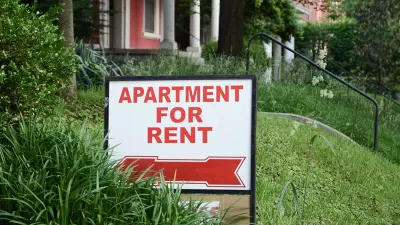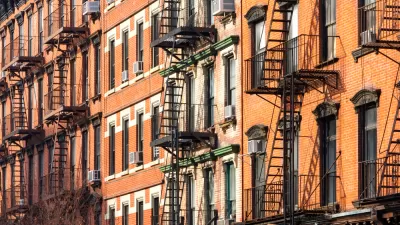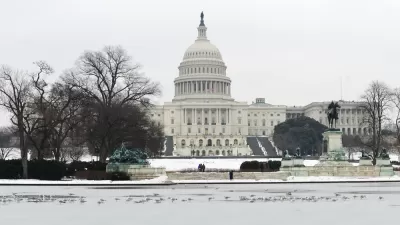People are moving less and rents are dropping, according to a new report from Apartment List.

Chris Salviati, Igor Popov, and Rob Warnock share data and analysis from the Apartment List National Rent Report from September, reporting one key finding that confirms what a lot of people have been expecting to see since March: declining rents.
According to the report, rents across the nation are down 1.4 percent compared to last year, and rents have declined in 41 of 100 largest U.S. cities, with significant variation depending on geography.
According to the article that shares news from the September rent report, rents tend to dip in September, but this September's dip follows a trend that continued throughout the summer:
In September, our national rent index dipped 0.1 percent. Normally, a September rent dip would be considered par for the course, and we saw similar declines in September of 2019 and 2018. But usually this dip follows a steady increase in rents through the summer peak season. In 2020, that peak season was severely disrupted by the shelter-in-place orders that defined the early stages of the pandemic, which caused a sharp dropoff in moving activity that put downward pressure on prices. Although the downward trajectory of our national index has since levelled off, rents are still down 1.4 percent compared to this time last year.
As for the varied geography of rent declines, here's what the report finds:
While rents are down nationally, the effects of the pandemic and its implications for the rental market have varied significantly by geography. Some smaller and more-affordable markets have seen rent growth quickly spring back to life after just a brief dip in the early months of the pandemic. Meanwhile rents in some of the nation’s most expensive cities are continuing to plummet.
San Francisco leads the nation, with rent declining by 17.8 percent for a two-bedroom apartment since March. New York City follows with 11.6 percent, and Seattle with 9.9 percent. Meanwhile, rent is growing fastest in cities like Boise, Toledo, and Greensboro.
While it might be tempting for renters in big, expensive cities to look at this news as welcome relief from the long-term climb of rental prices, the report notes that some of the dropping prices are caused by many renters looking to downgrade amidst financial hardship.
FULL STORY: Apartment List National Rent Report

Alabama: Trump Terminates Settlements for Black Communities Harmed By Raw Sewage
Trump deemed the landmark civil rights agreement “illegal DEI and environmental justice policy.”

Study: Maui’s Plan to Convert Vacation Rentals to Long-Term Housing Could Cause Nearly $1 Billion Economic Loss
The plan would reduce visitor accommodation by 25% resulting in 1,900 jobs lost.

Planetizen Federal Action Tracker
A weekly monitor of how Trump’s orders and actions are impacting planners and planning in America.

Wind Energy on the Rise Despite Federal Policy Reversal
The Trump administration is revoking federal support for renewable energy, but demand for new projects continues unabated.

Passengers Flock to Caltrain After Electrification
The new electric trains are running faster and more reliably, leading to strong ridership growth on the Bay Area rail system.

Texas Churches Rally Behind ‘Yes in God’s Back Yard’ Legislation
Religious leaders want the state to reduce zoning regulations to streamline leasing church-owned land to housing developers.
Urban Design for Planners 1: Software Tools
This six-course series explores essential urban design concepts using open source software and equips planners with the tools they need to participate fully in the urban design process.
Planning for Universal Design
Learn the tools for implementing Universal Design in planning regulations.
Caltrans
Smith Gee Studio
Institute for Housing and Urban Development Studies (IHS)
City of Grandview
Harvard GSD Executive Education
Toledo-Lucas County Plan Commissions
Salt Lake City
NYU Wagner Graduate School of Public Service





























